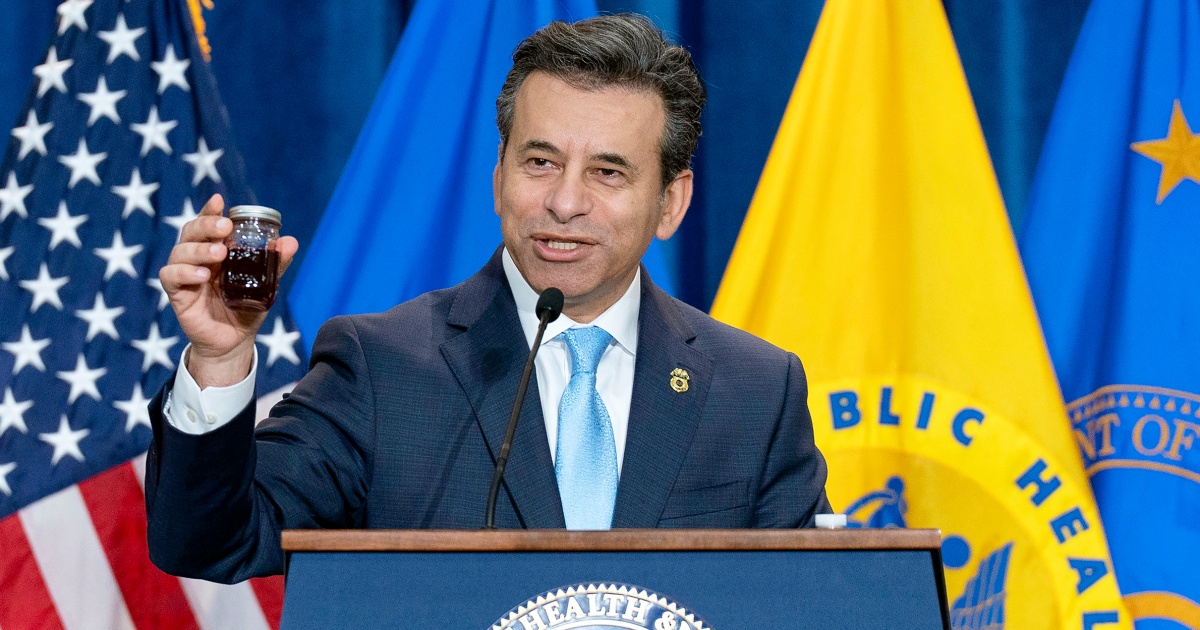Disrupting the Status Quo: Robert F. Kennedy Jr.’s Transformation of U.S. Health Policy
WASHINGTON — In a mere few months, Health and Human Services Secretary Robert F. Kennedy Jr. has made significant strides in redefining U.S. health policy. His initiatives have included reducing staff at health agencies, reorganizing regulatory and research focuses, altering COVID vaccine regulations, and pivoting the department’s mission toward alternative medicine. These changes reflect a deeper narrative: a response to a growing skepticism among a segment of health-conscious Americans who have become disillusioned with the traditional health establishment.
The Voter Shift
The shifts in public health priorities resonate particularly with a unique voter base — individuals like Bernadine Francis, a lifelong Democrat who supported Biden in 2020 but turned to Trump in 2024. Her endorsement of Kennedy’s agenda underscores a crucial shift in political allegiance based on health concerns. "From what I have seen so far with RFK’s efforts, I am really proud," she stated. For Francis and others, Kennedy’s changes offer a refreshing alternative to a system they believe has lost its way.
Francis articulated a deep discontent with the Democratic stance on public health, particularly regarding vaccine mandates. After being compelled to leave her teaching career for refusing the vaccine, she felt abandoned by the party she had long supported. This sentiment echoes throughout the ranks of disaffected voters, illustrating how health policy has become a pivotal issue in political realignment.
New Directions for Health Agencies
Kennedy’s administration has made bold decisions about the direction of public health agencies. Appointing Dr. Marty Makary as the FDA commissioner, Kennedy has signaled an era of reform aimed at eradicating perceived corruption influenced by pharmaceutical and food industries. Makary criticized past nutrition guidelines, claiming they were shaped more by corporate interests than health benefits. He announced plans for new nutritional guides, emphasizing a focus that aligns with current health research.
The recently published "Make America Healthy Again" report aims to tackle the implications of ultraprocessed foods and environmental toxins, setting a new research agenda for several federal agencies. While it faced early criticism for citing non-existent studies, the groundwork laid by Makary and Kennedy establishes a more holistic view of public health that encompasses the food supply, environmental impacts, and overall societal health.
Controversy Around COVID Vaccine Regulation
Kennedy’s reform agenda is not without controversy. Recently, he announced that the COVID vaccine would no longer be recommended for healthy children and pregnant women, a dramatic departure from CDC guidance that bypassed the usual public review process. This decision prompted a swift backlash, forcing a recalibration wherein the administration recommended consulting with healthcare providers instead.
This instance has raised questions about whether Kennedy’s actions may worsen public distrust in health policy. Critics argue that while tackling mistrust is essential, shifting one narrative for another can lead to confusion among the American public. However, supporters like Makary assert that Kennedy values scientific discourse, claiming he consults a wide range of experts in forming his health directives.
Bridging Conventional Medicine and Healthy Lifestyle Choices
Integrative approaches are also gaining traction within the healthcare dialogue. Figures like Dr. Dawn Mussallem, a breast cancer oncologist, represent a merging of conventional and alternative therapies. Having faced her own battle with cancer and experiencing a heart transplant, she emphasizes the importance of lifestyle in patient health.
Mussallem’s unique perspective positions her as a bridge between traditional medicine and emerging health paradigms. She dedicates significant time to address the health concerns of her patients, cautiously navigating misinformation prevalent in social media circles. This emphasis on holistic well-being supports Kennedy’s mission to elevate alternative therapies alongside conventional treatments.
The Role of Misinformation in Patient Care
For many healthcare professionals, the infiltration of misinformation complicates the patient care landscape. Mussallem frequently encounters patients overwhelmed by conflicting narratives on health, often exacerbated by sensationalized media.
Her approach promotes a balanced perspective, advocating for both conventional treatments and lifestyle modifications that can enhance overall health. “We have to trust conventional medicine,” she insists, while acknowledging the need for integrative modalities that delve into the root causes of illness.
The intersection of Kennedy’s health policy and the evolving patient care strategies reflect a broader cultural shift towards a more nuanced understanding of health. These developments highlight the ongoing tension as traditional medical systems grapple with changing public expectations shaped by both political developments and modern health discourse.
Through this lens, Kennedy’s emerging health agenda is not merely a series of policy changes—it’s part of a larger narrative about the evolving relationship between Americans and their healthcare system. The ongoing discussions reflect a complex dance of trust, skepticism, and the quest for an improved model of health that resonates with a diverse electorate.


